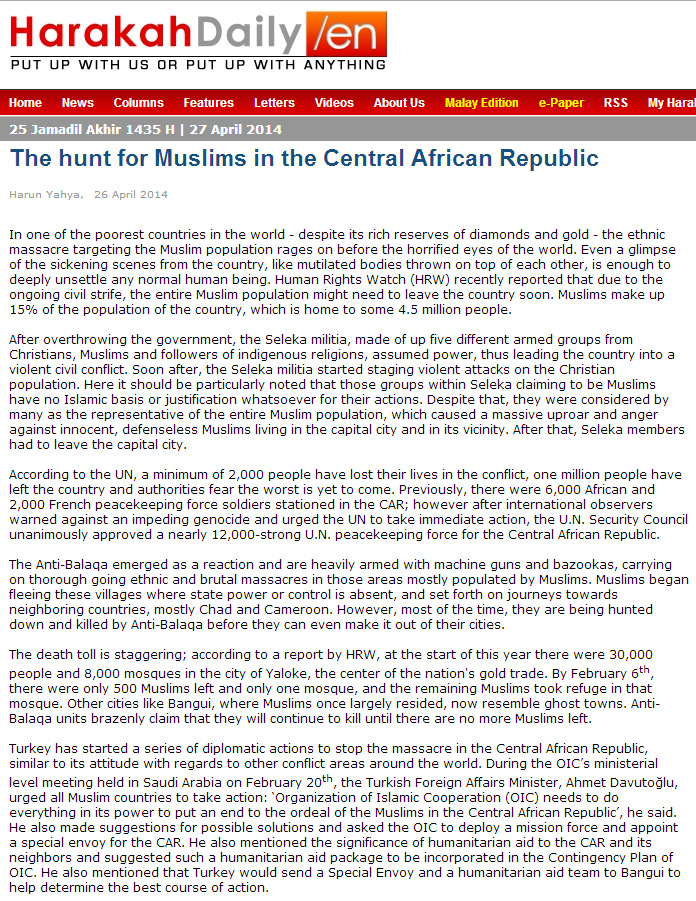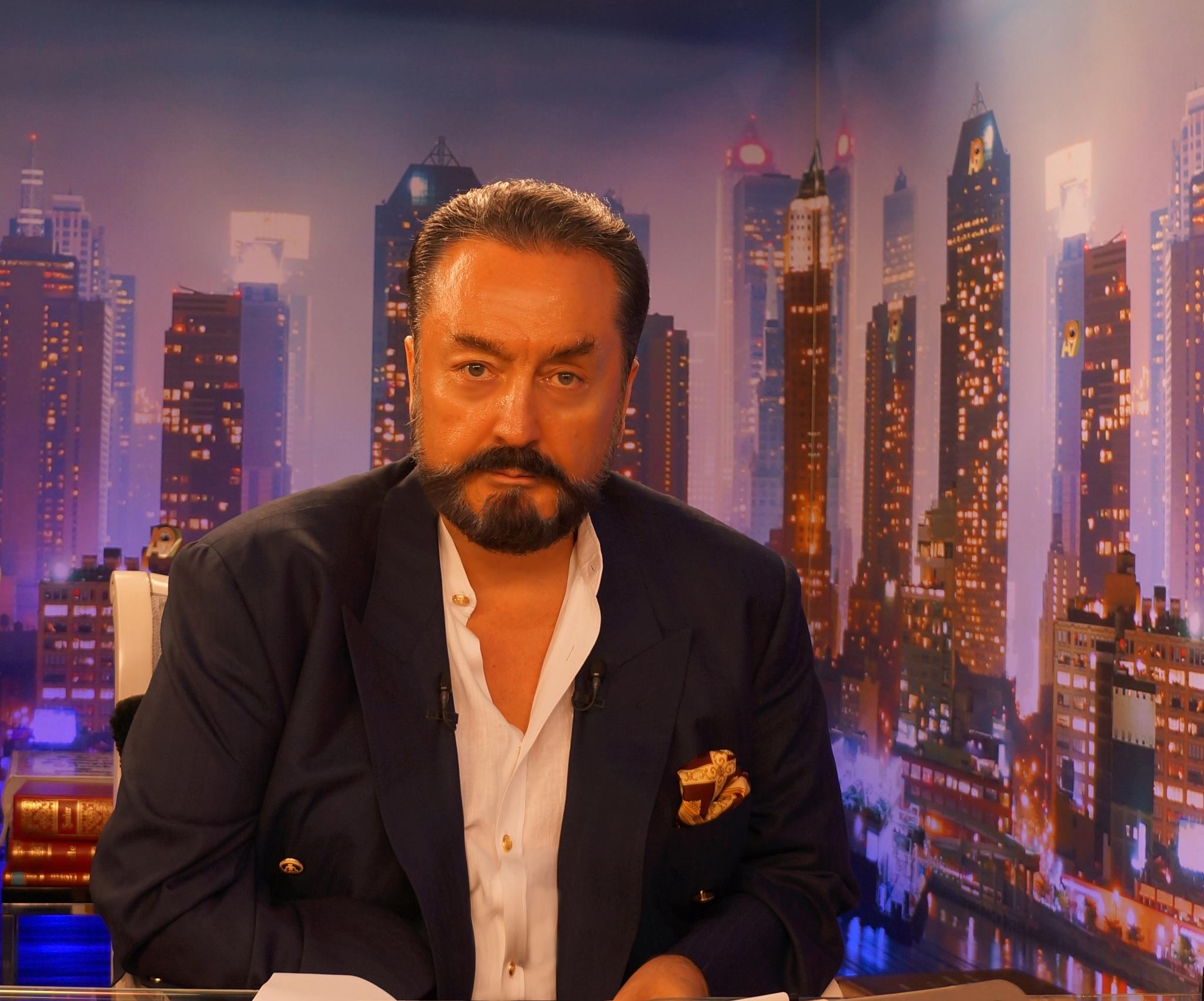Bigotry: The Dark Danger
The hunt for Muslims in the Central African Republic

In one of the poorest countries in the world - despite its rich reserves of diamonds and gold - the ethnic massacre targeting the Muslim population rages on before the horrified eyes of the world. Even a glimpse of the sickening scenes from the country, like mutilated bodies thrown on top of each other, is enough to deeply unsettle any normal human being. Human Rights Watch (HRW) recently reported that due to the ongoing civil strife, the entire Muslim population might need to leave the country soon. Muslims make up 15% of the population of the country, which is home to some 4.5 million people.
After overthrowing the government, the Seleka militia, made of up five different armed groups from Christians, Muslims and followers of indigenous religions, assumed power, thus leading the country into a violent civil conflict. Soon after, the Seleka militia started staging violent attacks on the Christian population. Here it should be particularly noted that those groups within Seleka claiming to be Muslims have no Islamic basis or justification whatsoever for their actions. Despite that, they were considered by many as the representative of the entire Muslim population, which caused a massive uproar and anger against innocent, defenseless Muslims living in the capital city and in its vicinity. After that, Seleka members had to leave the capital city.
According to the UN, a minimum of 2,000 people have lost their lives in the conflict, one million people have left the country and authorities fear the worst is yet to come. Previously, there were 6,000 African and 2,000 French peacekeeping force soldiers stationed in the CAR; however after international observers warned against an impeding genocide and urged the UN to take immediate action, the U.N. Security Council unanimously approved a nearly 12,000-strong U.N. peacekeeping force for the Central African Republic.
The Anti-Balaqa emerged as a reaction and are heavily armed with machine guns and bazookas, carrying on thorough going ethnic and brutal massacres in those areas mostly populated by Muslims. Muslims began fleeing these villages where state power or control is absent, and set forth on journeys towards neighboring countries, mostly Chad and Cameroon. However, most of the time, they are being hunted down and killed by Anti-Balaqa before they can even make it out of their cities.
The death toll is staggering; according to a report by HRW, at the start of this year there were 30,000 people and 8,000 mosques in the city of Yaloke, the center of the nation's gold trade. By February 6th, there were only 500 Muslims left and only one mosque, and the remaining Muslims took refuge in that mosque. Other cities like Bangui, where Muslims once largely resided, now resemble ghost towns. Anti-Balaqa units brazenly claim that they will continue to kill until there are no more Muslims left.
Turkey has started a series of diplomatic actions to stop the massacre in the Central African Republic, similar to its attitude with regards to other conflict areas around the world. During the OIC’s ministerial level meeting held in Saudi Arabia on February 20th, the Turkish Foreign Affairs Minister, Ahmet Davutoğlu, urged all Muslim countries to take action: ‘Organization of Islamic Cooperation (OIC) needs to do everything in its power to put an end to the ordeal of the Muslims in the Central African Republic’, he said. He also made suggestions for possible solutions and asked the OIC to deploy a mission force and appoint a special envoy for the CAR. He also mentioned the significance of humanitarian aid to the CAR and its neighbors and suggested such a humanitarian aid package to be incorporated in the Contingency Plan of OIC. He also mentioned that Turkey would send a Special Envoy and a humanitarian aid team to Bangui to help determine the best course of action.
However, it is obvious that it will take much more than the mere efforts of Turkey or OIC to stop the massacre in the Central African Republic. The country is now scene to genocide, which cannot be ended by the French troops, who are criticized for their lack of impartiality in the conflict. Therefore it is of paramount importance to immediately deploy an independent, international force in the region that will swiftly put an end to the conflict. Furthermore, it is critical that human rights organizations and NGOs swiftly and effectively coordinate their efforts and join forces together with the international peacekeeping force to be deployed, so that peace and safety can be restored in the country. Delaying such action would be the same as closing one’s eyes to this raging conflict and quite frankly, condoning it.
Adnan Oktar's piece on Harakah Daily:



